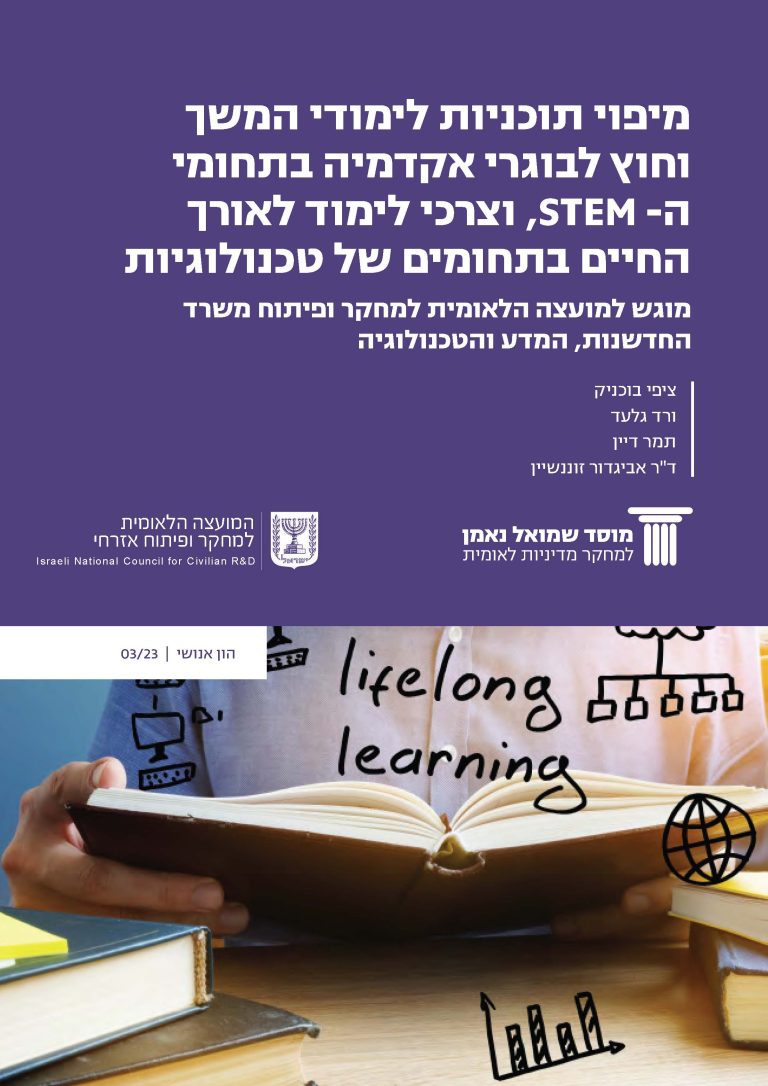Lifelong Learning (LLL) represents an additional stage in the “education chain,” supplementing primary, secondary, and tertiary education. LLL should systematically impart essential knowledge, abilities and skills across various domains that are in demand in the labor market. LLL opportunities should be accessible to all graduates, enabling them to continue advancing through self-directed learning or formal training throughout their careers, keeping pace with a constantly evolving job landscape.
Internationally, divergent LLL strategies demonstrate that this is an impactful issue. Modern nations feature substantial LLL-related activity, particularly in business sectors (industry) and public sectors (professional associations), as well as academic institutes, universities, and colleges. This report was prepared for Israel’s National Council for Research and Development, aiming to advance a framework for Israeli national LLL policy. The need for LLL is pronounced due to Israel’s shifting landscape, mirroring dynamic worldwide technological advancements accompanied by social and economic changes affecting the labor market. Emergent trends include creating new high-tech jobs while renewing existing ones to enable productivity growth. In light of these trends, continuous learning and skill-building throughout one’s professional life, beyond formal academics, is critical. Advancing national LLL policy and infrastructure necessitates assessing existing activities and overall professional needs.
This research and report were commissioned by Israel’s National Council for Research and Development. The report’s title is: “Mapping Continuing and External Learning for STEM Graduates and Expected Lifelong Learning Needs in Emerging Technologies.”The report comprises two parts and a summary chapter with conclusions and recommendations:- Part 1 analyzes continuing and external learning programs from all major Israeli providers that operate such programs for academic graduates in the STEM areas. – Part 2 maps and evaluates LLL programs needed across 13 emerging technologies – assessing status, market needs, and LLL gaps in each domain.In conclusion, the report furnishes recommendations for developing Israel’s national LLL infrastructure based on accumulated research findings.












